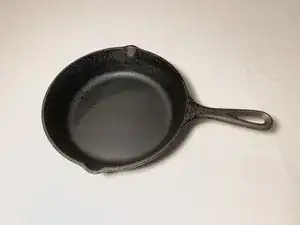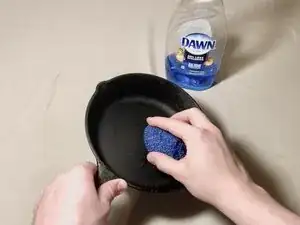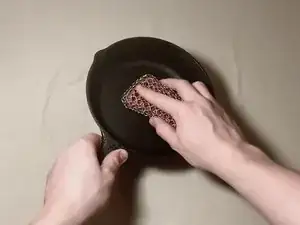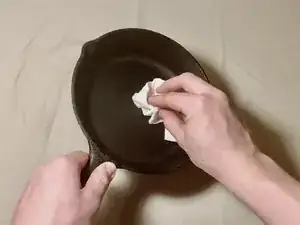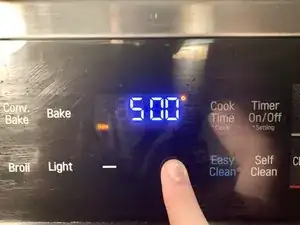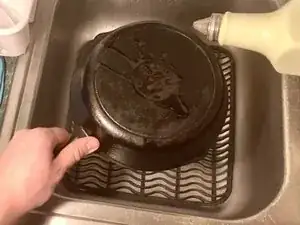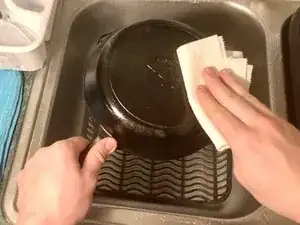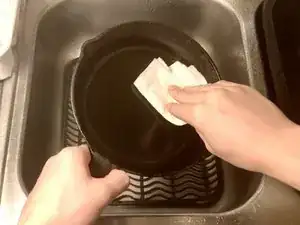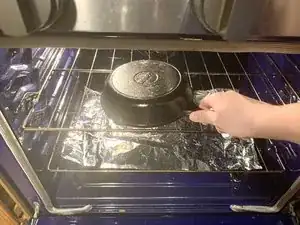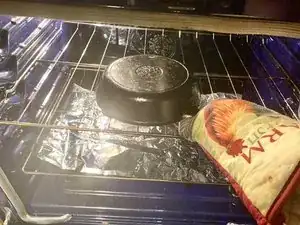Introduction
Cast iron skillets or pans are great tools in the kitchen, but they can be hard to maintain. After a lot of use, cast iron skillets tend to gather a lot of gunk, and food often begins to stick to the cooking surface. This happens when the cast iron skillet’s seasoned layer is damaged and no longer fully coats the pan. The seasoning is basically a layer of oil protects the pan from rusting and allows food to be easily removed. This guide will go through how to remove the damaged layer on a skillet, and will explain how to apply a new layer of seasoning to make the skillet feel as good as new.
Tools
-
-
Scrub the entire pan with steel wool.
-
After scrubbing the skillet, dry it off using a towel or paper towels. You can also place the skillet on a stove top for 30-45 seconds to dry it.
-
-
-
Pre-heat the oven to 500°F. (If your oven does not go this high, use the highest temperature.)
-
-
-
Lightly coat the skillet in a thin layer of vegetable oil.
-
Use a paper towel to evenly spread the oil over the entire pan, including the handle bar. The skillet should look somewhat shiny after this.
-
Grab a dry paper towel and go over the surfaces one more time to remove excess oil.
-
-
-
Place skillet in the oven upside down for 1 hour.
-
Place a piece of aluminum foil under the pan in case any oil drips.
-
The skillet should no longer have any sticky surfaces, and should cook as if it were new. To prevent damage to the seasoned layer, be careful with metal spatulas and make sure to only wash the skillet with soap and steel wool if you are removing a damaged layer to apply a new one.
3 comments
Step number 6 kinda leaves me hanging. Is there anything else to do, or a Step 7?
That’s it. The only thing left to do now is cook an awesome dish in your cast iron.
What temperature do you season your cast iron in the oven?
Connie -
